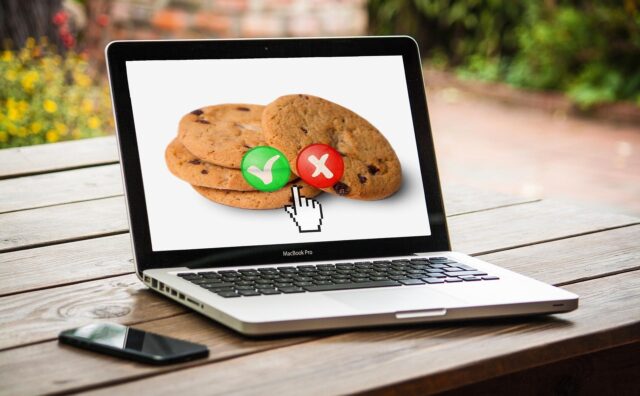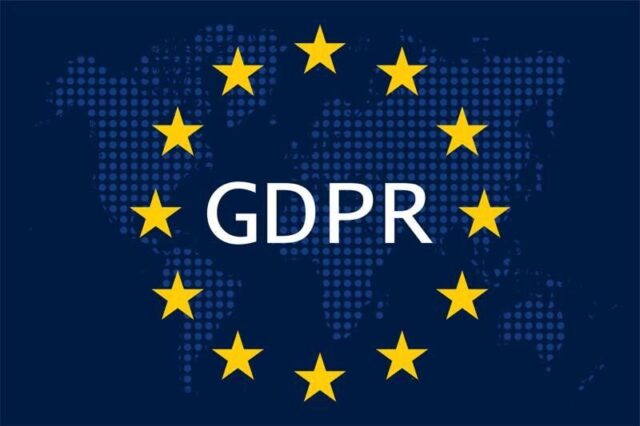
Despite their tasty name, tracking cookies are a potential privacy risk. But what data exactly can advertisers extract from them and should any of it concern you? Let’s take a look.
What Exactly Are Cookies?
A common misconception about cookies is that they are some kind of malware virus or adware. In reality, they are nothing but simple text files that certain websites place on your device. An advertiser won’t know your full name merely by looking at your cookies alone. They can, however, take a look at what pages you’ve viewed in the past and thus get a glimpse into what interests you. The purpose is not to identify you as an individual; rather, it’s to profile your interests so as to serve you ads that are better fitting and more targeted.
How Cookies Are Typically Used
Without cookies, a website would have no standardized way of remembering your login session, so there would be no way to stay logged in for a prolonged period of time, therefore creating an inconvenience for many users. Certain parts of the website like your private messages or shopping cart might not exist or be tied to other variables that are unique to you such as your IP address – however, this technique could be problematic because some people use dynamic IPs.
Cookies in eCommerce

The eCommerce industry also heavily depends on the use of cookies to optimize its sales funnels. Rather than trying to track you as a person, these online stores are on a mission to improve their bottom line, and they do so through constant testing and refinement.
In other words, they want to know at what point someone has wandered off and abandoned the shopping cart to find the reason why and fix it. Even a typical blog owner may do a similar thing to see where you decided to click away from the content so as to improve it.
What About Advertising Cookies?
Although advertising cookies are not essential to making a website work, they still play an important role in shaping a user’s overall experience. For example, an advertiser may opt to show you an ad no more than 1 or 2 times in total, which means you will stop seeing this particular ad after the counter reaches 2, thus preventing a case where you’d be bombarded with the same ad unit over and over again.
Advertisers can also use them to show user-specific ads, which is one of the main reasons why advertising cookies in particular have found themselves under fire from various privacy activists.
Introducing GDPR

To give people a say in how their personal information is collected and handled, Europe introduced a new privacy-oriented standard called General Data Protection Regulation (GDPR). As per the new set of laws, no website may place cookies on any user’s device without asking for their consent beforehand, with necessary cookies that provide functionality and improve performance being one of the only exceptions.
Long story short, GDPR did not mark the beginning of the end for cookies; however, webmasters now need to be much more careful in what manner they use them and they have to let the users know either way and ask for their consent.
When Cookies May Invade Your Privacy
By now, we’ve established there are different types of cookies, with some of them being more innocent than others. While some cookies are used to provide essential website functionality, some are considered problematic because they track your online activities. Although there is always an option of clearing your cookies and cache straight from your browser, if you aren’t in the habit of doing it regularly, webmasters can get a glimpse into your browsing history and even how long you spent browsing a particular website.
Do Cookies Track Your Behavior Across the Websites?

Certain data aggregators and advertisers can place a type of cookie on your device that’s considered cross-site. Since these cookies can also be accessed by a third-party, an argument can be made that your privacy is being violated.
For instance, to increase their conversion rate, advertisers may employ remarketing techniques. In essence, if you’ve viewed a product before, you may start seeing an ad that follows you around no matter where you go in an effort to get you to come back and view the product page one more time.
What Information Do Tracking Cookies Collect?
Apart from collecting information about what pages you’ve visited and how long you’ve had them open, tracking cookies also store data points about what products you’ve viewed, the IP address associated with your device, any previous purchases you’ve made, and your geolocation. Advertisers may then use the information collected to optimize their products, sales funnels, and the overall user experience.
Can Tracking Cookies Be Considered Dangerous?

If you’re a privacy-oriented individual, you may find an issue with tracking cookies, although part of their purpose is to tweak the overall experience to your liking. There is also a very legitimate concern about less ethical advertising networks that collect, handle, and potentially even sell your personal data without obtaining your consent. This can then be passed on to various third-party data aggregators that store it and share it with others, which is not in your best interest.
How to Get Your Personal Information Off the Internet
As luck would have it, there is a way to remove personal data from data aggregators without breaking a sweat. Typically, you’d have to fill out form after form to achieve the desired effect, but thanks to automated personal data removal solutions like Incogni, all of the heavy lifting on your end is effectively eliminated from the equation. In addition, these services also keep a watchful eye on any of it potentially resurfacing on the web, all while alerting you to its presence and working day and night to keep it off.
To Conclude

The bottom line is, not all cookies are created equal, and some can potentially serve more nefarious purposes than others. Thanks to initiatives like GDPR, people now have more control over what information can or cannot be stored by webmasters, and there is a way to wipe the cookies from your device in just a couple of clicks.
With that being said, you have a right and responsibility to protect your privacy, so you’re encouraged to give consent only where doing so is essential to your overall user experience.












